While some might consider the Australian jewellery industry as lagging behind other industries in terms of environmental, ethical and sustainable practices, there are some trailblazers setting the standard for others to follow. We spoke to some of them here to get their take on how Australia’s jewellery industry is progressing when it comes to love for jewellery, people and the planet.
Are blood diamonds truly a thing of the past?
The 2006 blockbuster film Blood Diamond gave wide exposure to a problem long known in the jewellery industry: that the diamond mining industry is harmful to developing nations and third-world diamond miners. In 2003, the Kimberley Process was implemented which sets out requirements for controlling rough diamonds and trade, and effectively prevents ‘conflict diamonds’ from entering the mainstream rough diamond market. 18 years after the implementation, our contributors had mixed responses as to how the ethical diamond scene has progressed since then.
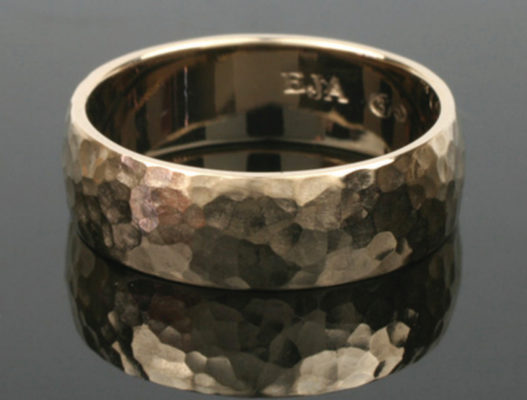
1/8 Ethical Jewellery Australia
Utopian Creations is an Adelaide-based ethical bespoke jeweller operating since 2005, and director Ben Manning said the Kimberley Process was successful in the specific goal of preventing the sale of diamonds to fund militia violence, but that’s all.
“It can’t stop governments from selling diamonds to fund violence (such as that which occurred in Zimbabwe by Robert Mugabe), it doesn’t stop environmental damage or all the other social impacts that can happen from diamond mining,” he said. “The Kimberley Process was not set up to determine the ethical nature of a diamond and it does not serve that purpose.” Ben praised the fact that the mined diamond industry has changed for the better over the past 20 years, with great advances in environmental stewardship in some countries along with co-operation with indigenous groups. “However some parts of the world are still languishing with child/forced labour in both the mining and cutting industries.
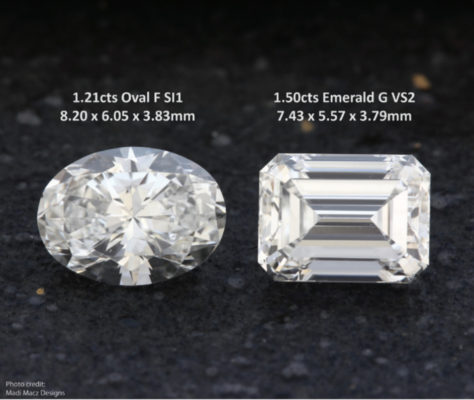
2/8 Inspira Diamonds
“Improved traceability and guidance by industry bodies, public, private and NGO’s will help greatly into the future.” Also founded in 2005, Inspira Diamonds is a Perth-based wholesale diamond distributor which provides a platform for diamond goods with sound provenance. Company director Steve McClelland and director of marketing Charmaine Thane both said that the ethical diamond industry had progressed significantly since the company’s founding, and thanks to ethical diamond brands such as theirs driving change from the supply end of the chain. “The raising of awareness in the ‘ethical gem’ community and driven by consumer consciousness has also assisted considerably,” they said.
They also pointed to Argyle’s closure which leaves open the question as to the next major source of ethical diamonds to the international jewellery community.
Benn Harvey-Walker from online-only Queensland-based ethical jewellery brand Ethical Jewellery Australia echoed Ben
Manning’s message about the Kimberley Process failing to be a panacea. “Is the problem of blood diamonds behind us? It’s probably fair to say it’s largely in remission, but there are no guarantees the problem won’t remerge given the right (or wrong) circumstances reappearing in diamond rich, politically unstable developing nations,” he said.
“The ethical diamond industry has made some significant inroads into improving transparency and raising public
awareness, which is undoubtedly a good thing.”
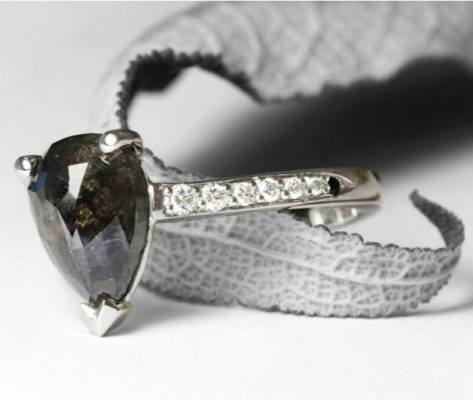
3/8 Zoe Pook
Sydney-based founder/jeweller Zoe Pook of her eponymous jewellery brand agreed that the Kimberley Process has its flaws, one notable flaw in the Process certification being the Marange Diamonds inclusion. “When Mugabe took over the Marange diamond fields in Zimbabwe in 2008, hundreds of people were killed but they were still included in the certification process,” she said. “As the Kimberley Process focuses solely on distribution and sales it tends to turn a blind eye to human rights and worker exploitation.”
Lab grown/lab created diamonds (LGD) have been the new kid on the block and has seen impressive growth in recent years, with even claims of being a more ethical choice than its natural counterpart. Steve and Charmaine’s personal opinions are that LGDs are a convenient alternative and just that. “Primarily due to the fact that there are no new diamond sources of the magnitude of Argyle, Diavik etc,” they said. However they both levelled criticism at LGDs’ high energy costs and questionable economic value.
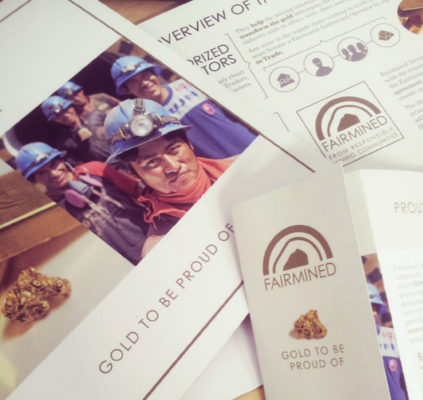
4/8 Zoe Pook
“Not only has their energy usage been brought to question, they provide no economic value to the industry in terms of royalties to governments, employment, or any kind of beneficiation to the people, other than to the manufacturer itself!” they said. “(Whereas) when a diamond goes from rough values to jewellery value through the value chain, there are numerous participants and commercial stimulation for multiple economies, not one manufacturer.” Zoe said LGDs are conflict-free, but conceded that nothing in the diamond industry is totally ethically clean or sustainably produced.
“However, there are ways to make the best choice you can for your client,” she said. “I inform my clients about everything I know (about LGDs).”
Zoe Pook acquires their LGDs from The Diamond Foundry, who in Zoe’s opinion, are doing their best with regard to sustainable goals. The place LGDs will play in ethical jewellery is completely up to the growers and miners themselves, according to Ben. “In some cases LGDs would have a far lower environmental impact than mined diamonds, however in other cases it would be the mined diamonds that would have a lower impact,” he said.
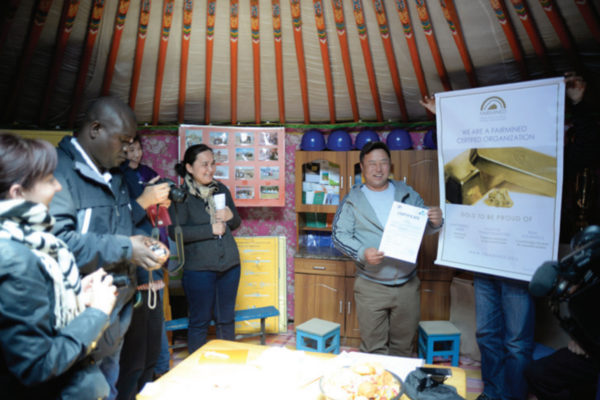
5/8 Zoe Pook
“The problem for jewellers and consumers is that most diamonds whether mined or lab-grown don’t come with information about origin… without this it’s very hard to make a claim that one or the other is better for our planet and communities.” Ben also praised Diamond Foundry who play a major role in the eco-conscious LGD scene. For Benn at Ethical Jewellery Australia, LGDs are an accepted part of the ethical and mainstream jewellery markets, and also ethically sound for the simple fact that LGDs aren’t mined. “That is, the environmental damage (not just carbon emissions) from mining weigh more heavily than anything else,” he said. Benn acknowledged LGDs’ large carbon footprint and said for this reason there are good and not-so-good producers. “Our preferred suppliers use renewable energy in the manufacture and cutting of their diamonds, so we get the best of both worlds.”
Precious metals of provenance
With initiatives like Fair Trade Gold, Fairmined Gold and Single Mine Origin (SMO) Gold, it would seem gold is much further ahead than diamonds in terms of traceability, ethical mining and trade, with seemingly far more options in the market for ethical gold. Benn said that Fair Trade, Fairmined and SMO gold purveyors have generally improved traceability by isolating their supply chains from mainstream markets. “Typically a reseller will need to be licenced by the marketing body before they can promote themselves as a user/supplier of the product,” he said. “In this way, Fairmined, Fair Trade or SMO gold can be traced back to the mine or mines it originated from.”
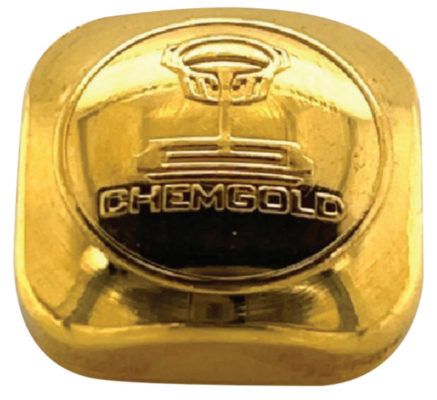
6/8 Chemgold
He said that marketing bodies such as fairmined.org that aggregate their gold supply from various certified mining operations to ensure miners are relatively well paid, their working conditions are relatively safe, the mining operations are as environmentally conscientious as they can be, and their communities are well supported. “To this extent, Fair Trade/Fairmined gold represents a responsible sourcing option.” Chemgold is a Sydney-based precious metal supplier, jewellery service business and a member of the Responsible Jewellery Council operating for more than 30 years.
Director Darren Sher said that their business only uses precious metals mined with an eco-friendly approach. “Protecting human rights and upholding our social responsibility are also key factors in our manufacturing process,” he said. Their supply chain policy mandates that precious metals supplied from Chemgold are not acquired through human rights violations such as child labour or slavery, do not serve or support criminal or terrorist activities such as money laundering, and were not extracted or processed in ways which destroy the earth’s surface or harms the
environment.
“We demand corresponding evidence from our suppliers and actively support them in implementing these values in their supply chain,” Darren said. For Zoe, Fair Trade, Fairmined and SMO gold are the only certifications which guarantee the gold’s origin and make an actual difference to the amount of artisanal gold miners in the industry, where health and safety conditions are poor and corruption is rife.
“I could buy ‘Australian Gold’ but who is that helping? Rich mine owners, that’s who. It’s not an ‘ethical’ choice,” she said. Ben Manning said that Fair Trade, Fairmined and SMO gold has shone a small spotlight on the issues and shown what’s possible forresponsible gold mining and traceability. However, he doesn’t believe that it has yet changed the enormous problems with Artisanal and Small Scale gold Mining (ASM) around the world.
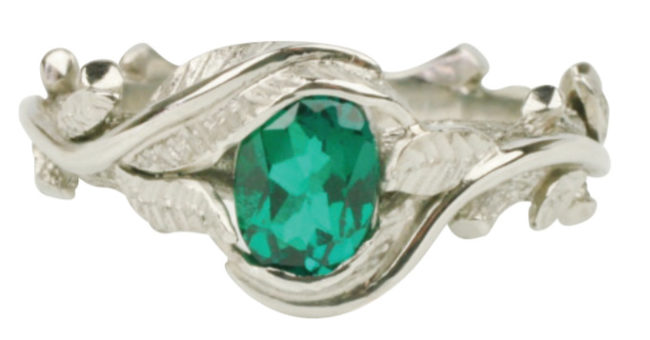
7/8 Ethical Jewellery Australia
“In most cases ASM is far worse for the environment and communities than gemstone mining… the environmental impacts can be devastating both locally and internationally from rainforest clearing to the rising amount of mercury in our seas,” he said. “The processes laid down by Fair Trade and Fairmined gold should be a blueprint for the industry to follow and for governments around the world to try to implement before more land is destroyed.”
Sustainability all starts small
The brands we spoke to are not just sourcing ethical gold, diamonds and gems, they have also implemented some environmentally-friendly and sustainable in-house processes into their businesses, and invested in philanthropic programs to make real change on the ground.
Ben said Utopian Creations was founded as a sustainably-focused jeweller, which meant that they looked at each input, output and process carefully and assessed ways to reduce any negative impacts as far as possible, or in some cases eliminating some altogether. As such, they’ve used 100% green power since the company’s inception; in the past they used a combination of recycled precious metals and Fairtrade metals, whereas now they are transitioning to Australian gold. “Our gems and diamonds are predominantly Australian, around 95%,” Ben said. “In our workshop we use a plant-based polishing compound, make our own polishing buffs from certified organic cotton and reusable spindles, and we use citric acid pickle. “Even our packaging is carefully considered, our jewellery boxes are made from certified Australian timbers and our outer packaging is all made from 100% recycled card printed with vegetable inks.”
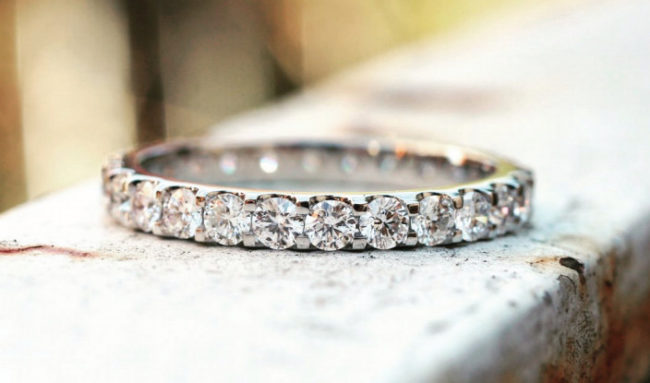
8/8 Ethical Jewellery Australia
Darren said that Chemgold has thorough processes in place to efficiently produce gold with minimal waste. In addition, they have taken every measure to protect its staff and the environment through their casting process by importing state-of-the-art German and Japanese kilns which are built into an exhaust system with after burners which makes possible complete non-smell, non-pollution furnaces. Their slurry waste from investing and casting is filtered so that none of it ends up in the sewerage system and is collected yearly by a specialised environmentally friendly company.
At Ethical Jewellery Australia, Benn said they plant two trees for every jewellery piece they make through working with Carbon Positive Australia. In addition, they have a sponsor relationship with an international development non-profit called Pact which works on the ground in nearly 40 countries to end poverty and marginalisation. “We chose Pact because they support artisanal miners in developing nations, particularly in the coloured gemstone space – an important subset of the fine jewellery industry,” he said. “In particular, we sponsor their Mines to Markets initiative,”
Steve and Charmaine said that since Inspira Diamonds is a small business so is their carbon footprint, and in 2014 they revamped their ‘output’ to remove the use of plastics in their certificate covers, displays and boxes, thereby reducing their use and need for plastics. “This involved significant product re-design…(but) we are very happy with the outcome,” they said. Zoe Pook said she uses compostable packaging for her products and her business runs off green power.